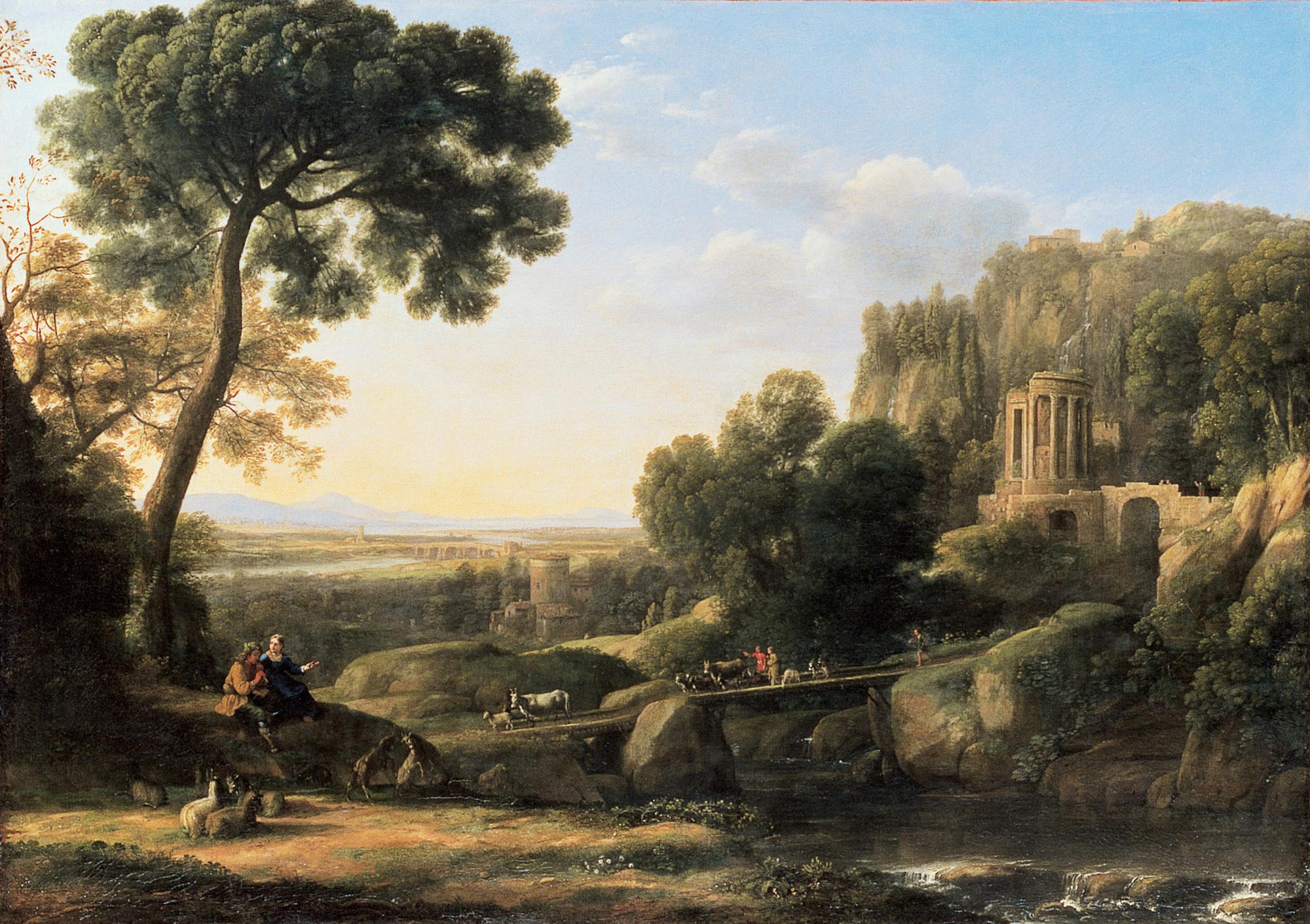"Therefore am I still
A lover of the meadows and the woods,
And mountains; and of all that we behold
From this green earth; of all the mighty world
Of eye and ear, — both what they half-create,
And what perceive; well pleased to recognize
In nature and the language of the sense,
The anchor of my purest thoughts, the nurse,
The guide, the guardian of my heart, and soul
Of all my moral being."
– William Wordsworth, Titern Abbey
So far this semester, we've been thinking mostly about wild landscapes with the occasional human intervention. But this week, we'll be considering landscapes that are places for contemplation and awe, and the historical (and often contemporary) view that the natural world is an untidy place to be tamed.
As we have seen already, views about nature are constructed by context, historical period, and culture. This post, from Poets.org puts it well:
"Our concepts of nature are relative, historically determined. The nature poem is affected by ideology, by literary conventions as well as social and cultural ideas. Raymond Williams contends, 'Nature is perhaps the most complex word in the language.' The term nature is itself contested now because it seems to assume an oversimplified relationship between the human and the environment. 'Nature' has been the site of so many different naïve symbolisms, such as purity, escape, and savagery."
One very common symbol for nature is the sublime, which captures the "purity, escape, and savagery" mentioned above. Standing at the edge of the grand canyon, or at points along the Grand Tour, we feel what philosopher Alain de Botton called a "sense of finitude and limitation and had elicited a feeling in which fear and respect coagulated into a strangely pleasing feeling of humility." (de Button goes on to say that, starting in the 19-century, technology replaced nature as the site of the sublime – what do you think of that?)
As this view of the sublime emerged, the landscape was shifting from being mostly wild to being more and more shaped by humans: most of Europe was cities and farms, the American west was shrinking, and few wild spaces existed. By the end of the 19th century, the telegraph reached all of the US and across all major oceans. The poems we read today come out of this world view, one of a yearning for wild and pastoral places – a view of nature removed from daily interaction with it. (This approach would be well contrasted with John Muir and the Beats, who were interested in connecting with the natural world in a more holistic, spiritual, and conservational way.)
Above: Claude Lorraine's painting of a pastoral landscape, ca 1644
###IN CLASS
"Ah! I need solitude. I have come forth to this hill at sunset to see the forms of the mountains in the horizon — to behold and commune with something grander than man. Their mere distance and unprofanedness is an infinite encouragement." – Henry David Thoreau, journal entry, 14 August 1854
Today we'll be taking a nature walk in the sandbox video game Minecraft, stopping periodically to observe, reflect, draw, and write in the spirit of Thoreau, Frost, and others.
We will not be using the build or fight functionality in Minecraft. Instead, we'll follow national park rules: take only memories, leave only footprints. As much as you might want to, please do not break blocks, even flowers. Walk slowly, really look around and enjoy the landscape. When you find a nice spot, stop and "sit". Look around and relax, then make a drawing or write. This can be a description, a poem, a reflection, anything. The goal today will be one poem and one drawing you're happy with (you'll probably need to make quite a few to get one you're happy with). Next week, we'll print and bind one poem and one drawing from everyone, making chapbooks of our experiences to share.
Before starting, please set your Minecraft options as follows (Esc > Options... to get this menu):
- Set
DifficultytoPeaceful(ie no enemies, just exploration) - Turn music off (sound effects are optional)
- Try experimenting with the field of view (FOV) and see how it affects your experience
###RESOURCES
- For more on the history of nature poems, and a great bibliography, see this Poets.org post, and this more in-depth one
###HOMEWORK
For next week, please bring at least one finished drawing (hard copy) and email your poem to me (jeff.thompson@stevens.edu). You can also bring some fancy paper for our book covers (you'll need one piece at 8.5x11") but this is optional.
Additionally, we will be starting our research project this week. For next week, please prepare a bibliography and gather visual material. For details on this project and what's due, see the Research Project post.
###READINGS FOR NEXT WEEK
- Selection from Endurance (Lansing)
- The Metamorphosis: What Is It Like To Be An Animal? (Rothman)
###BRING Please bring your laptop, as we'll spend most of the day exploring in Google Maps.
